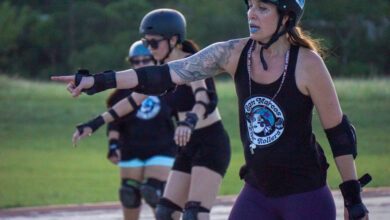“Blue Sunday: A Focus on Child Abuse Awareness for Faith Communities”
By, Ashley Rios, LCSW – Roxanne’s House Children’s Counselor
The following article is the fifth and final article of a five-week series focusing on raising awareness about sexual assault and child abuse. April is both Sexual Assault and Child Abuse Awareness month and it is our hope to educate our local community on these two very serious issues. 2 in 5 women and 1 in 5 men will experience a form of sexual assault in their lifetime. Locally, the Hays-Caldwell Women’s Center has been serving victims of domestic and dating violence, sexual assault and child abuse since 1978. Last year, HCWC served 2,111 victims of abuse (face-to-face) from Hays and Caldwell Counties. 749 of those were adult victims of sexual assault and 545 were victims of child abuse.
As Child Abuse Awareness Month comes to a close we focus on a faith-based awareness initiative, Blue Sunday. This year Blue Sunday takes place on April 28 and is recognized by various churches in our community.
Blue Sunday began in 1994 with twenty churches participating. Today, over 7.4 million churches across five continents participate in Blue Sunday. On this day, faith-based communities are encouraged to take time in their services to pray for victims of child abuse and bring awareness to an issue that impacts 175 children in Texas daily.
Child abuse including sexual abuse, physical abuse, emotional abuse, and neglect, does not discriminate; children and families from all socioeconomic groups, races, ethnicities, and religions can be affected. For some child victims of abuse, faith plays a role in their healing process. Many children and adolescents find comfort and support in their faith-based communities after experiencing a traumatic event.
Faith-based communities and all adults can also advocate for child abuse victims by becoming familiar with the signs of child abuse below and alerting appropriate agencies of suspected or known abuse.
1. Unexplained Injuries: Visible signs of physical abuse can include bruises, marks or burns in shapes and patterns of objects. Unconvincing explanations for a child’s injuries may also be heard.
2. Changes in Behavior: Abuse can lead to changes in a child’s behavior. Children may become scared, anxious, depressed, withdrawn or more aggressive.
3. Returning to Earlier Behaviors: Abused children may revert to behaviors from earlier stages of development. For example, thumb-sucking, bed wetting, fear of the dark or strangers.
4. Fear of Certain Places or People: Abused children may express apprehension or anxiety about leaving school, or about going places with the person who is abusing them.
5. Changes in Eating: Stress, fear, and anxiety caused by abuse can lead to changes in a child’s eating patterns which can cause weight gain or weight loss.
6. Changes in Sleep: Abused children may experience frequent nightmares or have trouble falling asleep which can lead to a tired appearance or fatigue.
7. Changes in School Performance and Attendance: Abused children may have trouble concentrating in school, and have excessive absences, at times due to adults trying to hide possible injuries.
8. Lack of Personal Care or Hygiene: Abused and Neglected Children may appear uncared for and present with body odor, appear dirty, and lack sufficient weather appropriate clothing.
9. Risk Taking Behaviors: Adolescents experiencing abuse may engage in high-risk activities including using drugs and alcohol.
10. Inappropriate Sexual Behaviors: Children who have experienced sexual abuse may exhibit overly sexualized behavior or use explicit sexual language.
If you know or suspect a child is experiencing abuse report at 1-800-252-800 or at www.txabusehotline.org.
All children have the right to grow, to be happy and healthy, and to reach their full potential in a world free of abuse. This Blue Sunday we can join our faith-based comminutes in praying for children and families impacted by child abuse and commit to believing and supporting victims.
If you suspect a child you know is being abused, report to the statewide child abuse hotline at 1-800-252-5400 or online at www.txabusehotline.org or to your local law enforcement agency.
HCWC’s children’s advocacy center, Roxanne’s House, provides services to local victims of child abuse such as forensic interviews, counseling, family advocacy and coordinates efforts with local law enforcement, CPS (Child Protective Services), CASA (Court Appointed Special Advocates) and district attorney’s offices.
For more information about services, please call HCWC at (512)396-4357 or visit www.hcwc.org. You can also visit our educational website www.StopTheHurt.org for more education on abuse issues and resources.






